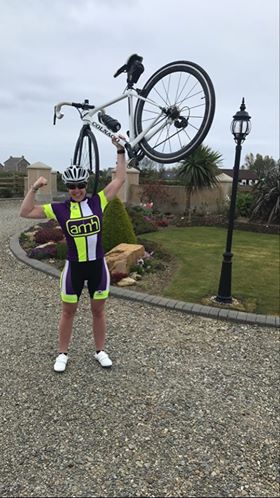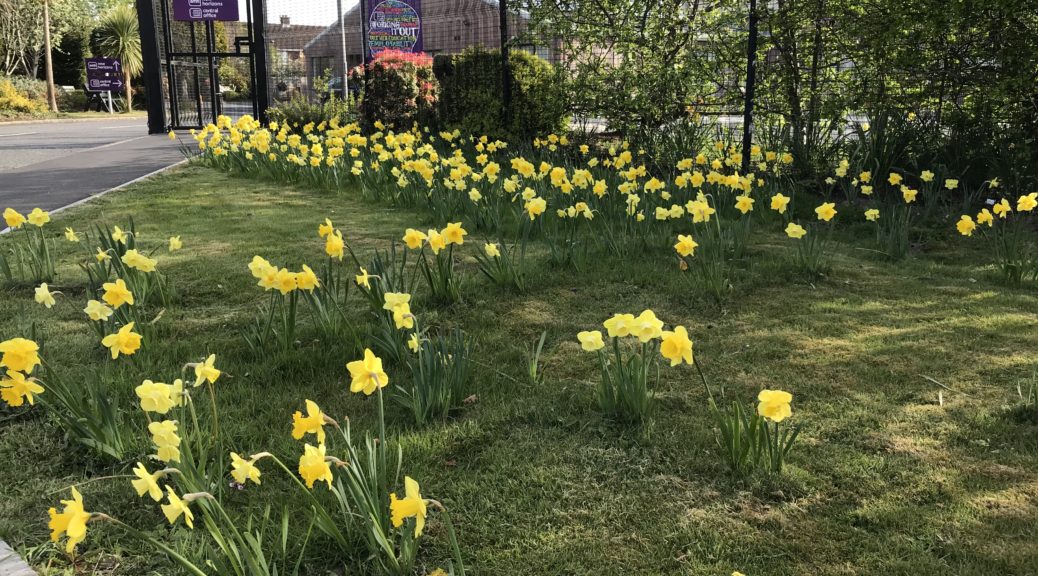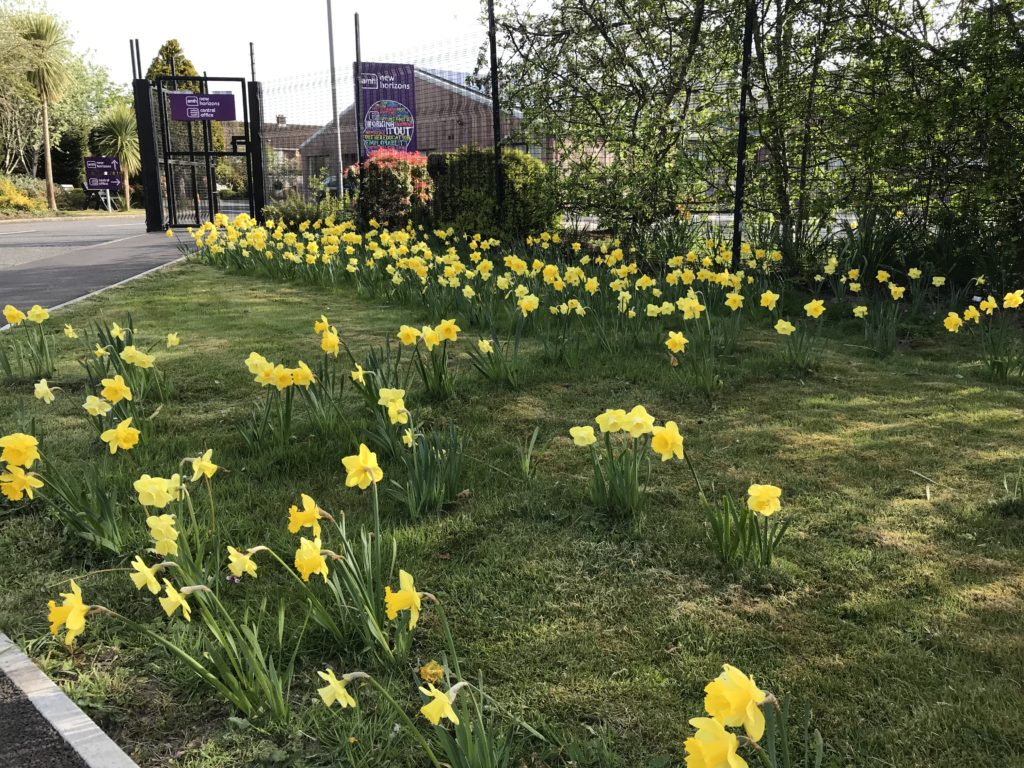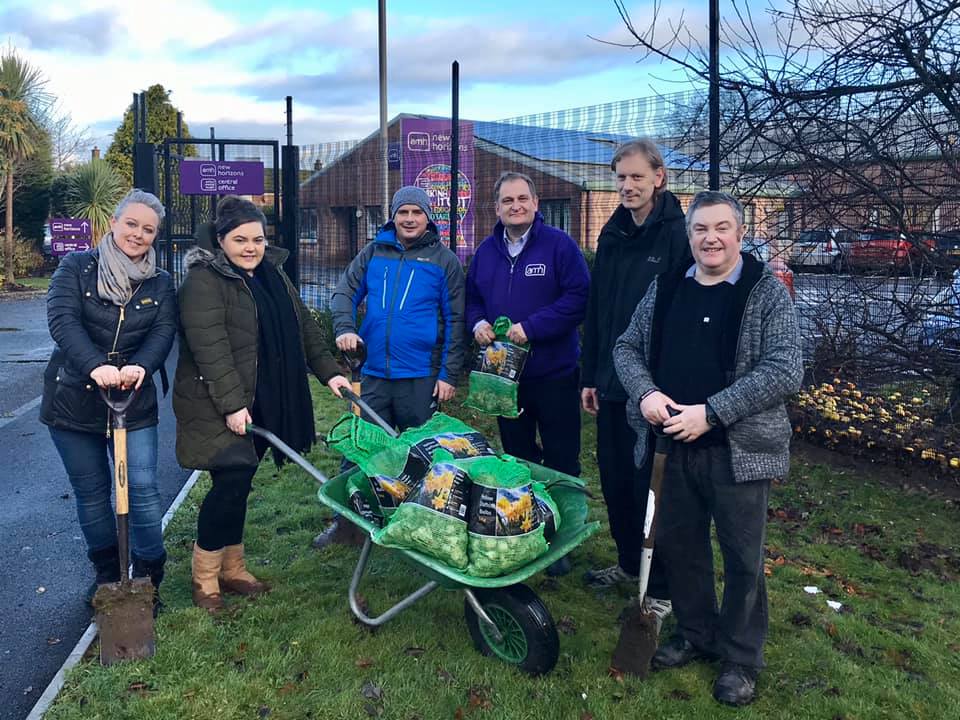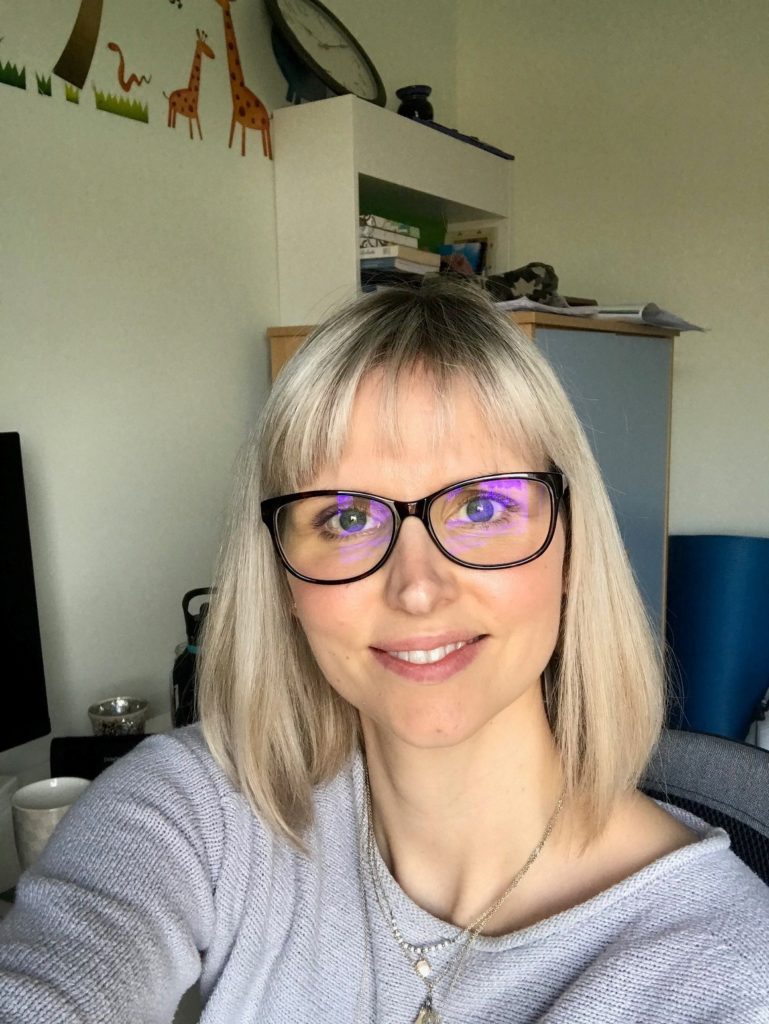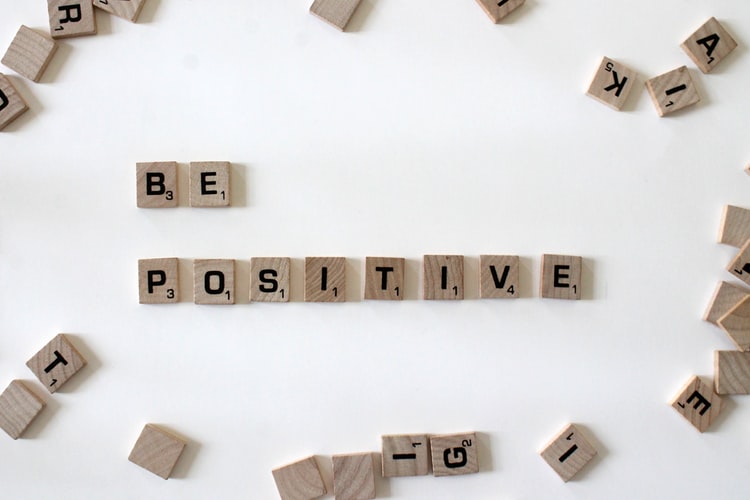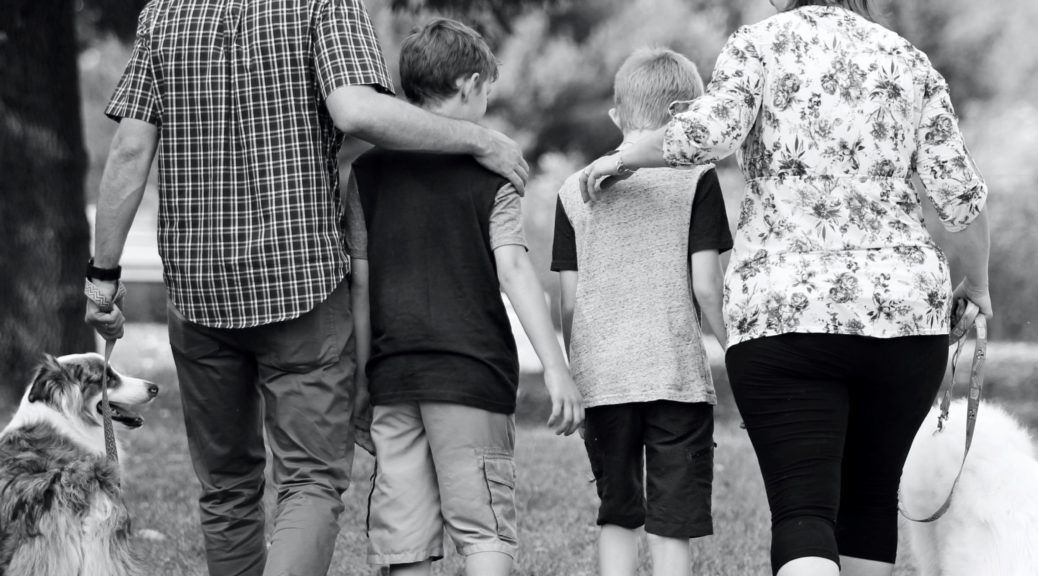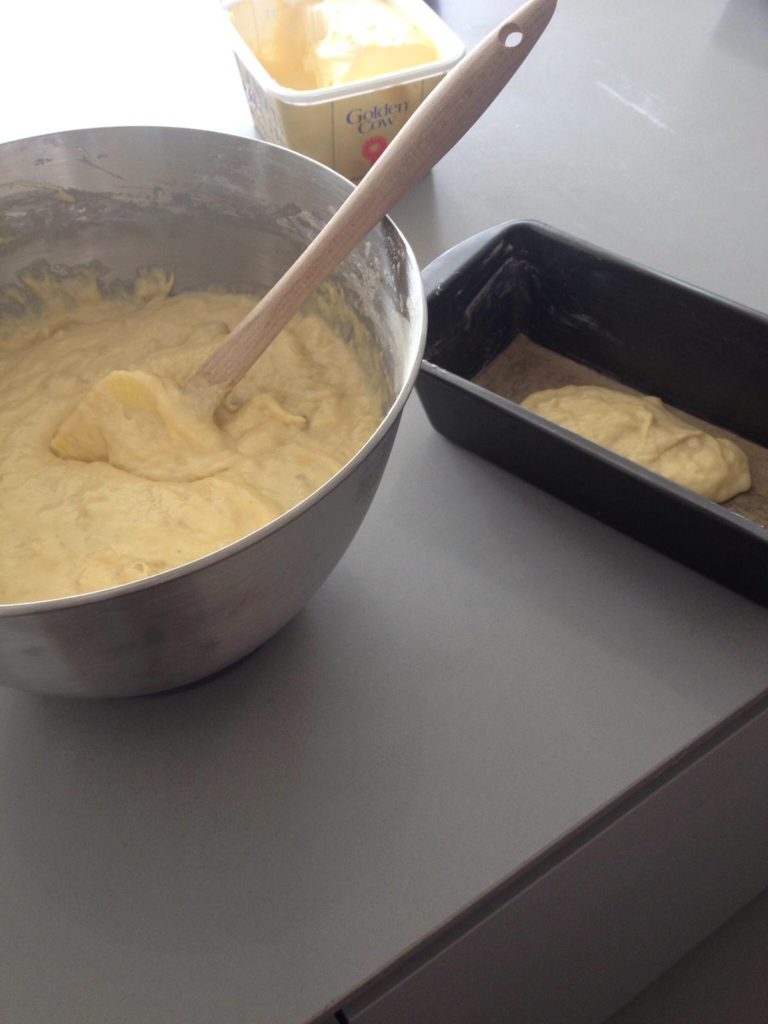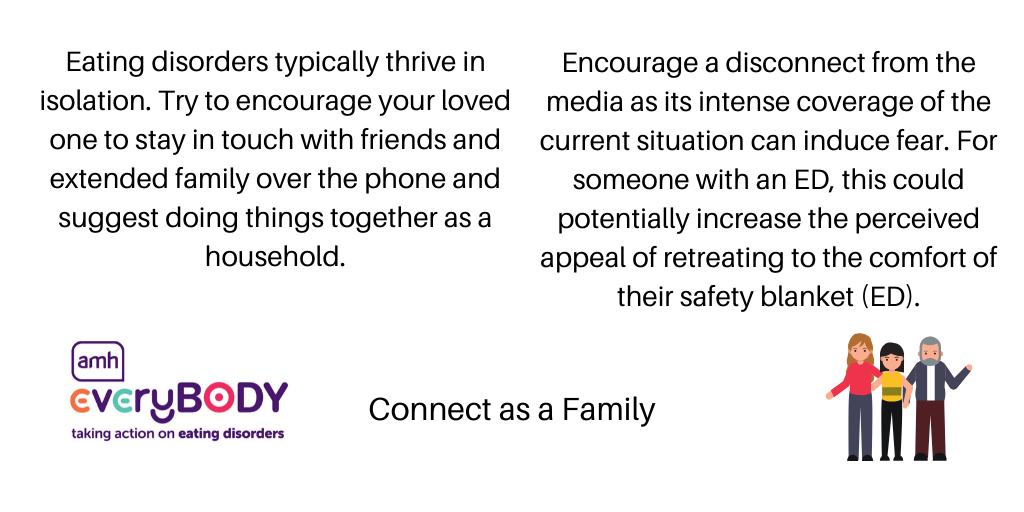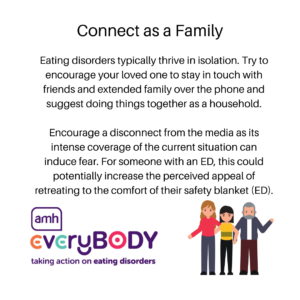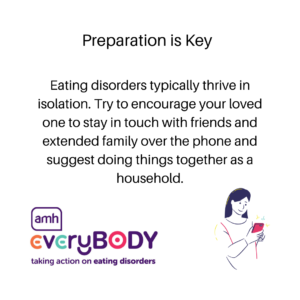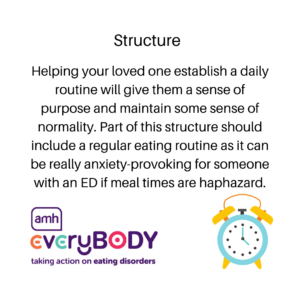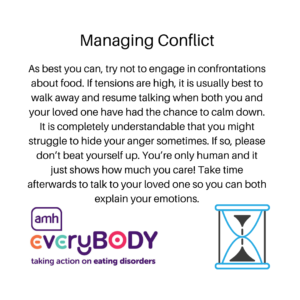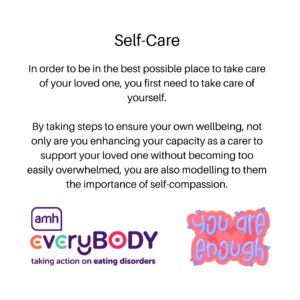The unprecedented situation we currently find ourselves faced with is causing significant disruption to life as we know it. Although the change to normal routine is something most of us are struggling to adapt to, for someone with an eating disorder, it can invoke anxiety on a much larger scale.
As a carer, we understand this can be an extremely scary time for you too. You might be spending more time at home with your loved one and it can be extremely difficult watching them struggle. You may experience feelings of helplessness but please do not underestimate the key role you can play in supporting them through this uncertain time.
We have put together some information to give you some insight as to the thoughts/feelings your loved one might be experiencing right now. This will aid your understanding of how you can best support them and we have included our own top tips to help along the way.
Sometimes, you might feel a little out of your depth, and that’s okay, you’re still learning. If you feel you could benefit, we are currently offering telephone and online support. Please don’t be afraid to reach out by emailing either [email protected] or [email protected].
What your loved one’s eating disorder might be telling them
Eating disorders are a coping mechanism and stressful situations such as the one we find ourselves faced with at present can exacerbate behaviours as your loved one may resort to controlling the one thing they know best… FOOD. Their eating disorder might exploit the uncertainty and try working hard to convince them this is an opportunity to press pause on recovery and engage in ED behaviours.
So, what can you do to help?
CONNECTING AS A FAMILY
Social distancing, although necessary, will likely prove challenging for your loved one. After all, eating disorders typically thrive in isolation! Our daily activity has been significantly restricted and this disruption may strengthen your loved one’s exercise compulsions. Try to encourage them to stay in touch with friends and extended family over the phone and suggest doing things together as a household. Pre and post mealtimes can be particularly difficult so encouraging your loved one to join you in playing a board game or watching a film could help relieve some of their anxiety at these times.
This will also help encourage a disconnect from the media which is important as its intense coverage of the present situation can induce fear. For someone with an ED, this could potentially increase the perceived appeal of retreating to the comfort of their safety blanket (ED). It might also serve as a distraction from social media which is equally important as it is currently rife with ‘jokes’ about the impact social distancing could have on our weight. Your loved one’s ED (like society at large) will try to demonise this. You can help by trying to keep conversation neutral. AVOID discussing weight/shape around your loved one and model a balanced relationship with food.
OPEN AND HONEST CONVERSATION
Boil the kettle and have a chat with your loved one over a cuppa about the current situation. Let them know that you understand it is likely causing them great distress. Ask them what they are most afraid of and what you can do to help, reassuring them that you are here to do so in any way possible. You might want to encourage your loved one to create a coping plan for the coming weeks. This will help them to identify healthy coping strategies they can implement to overcome particularly tricky periods, perhaps including things like mindfulness, journaling their thoughts, drawing, or listening to music.
PREPARATION IS KEY
Even without the frenzy of everyone stockpiling, food shopping can be an overwhelmingly distressing experience for someone with an ED. Right now, your loved one might be fearful of not being able to find their ‘safe’ foods. You could help them come up with a Plan B (and maybe even a Plan C) as preparing for meal and/or snack changes could help lessen their anxiety.
Furthermore, in our attempts to limit trips for essential items, we tend to be buying greater quantities of food. Your loved one might find this really tricky to manage and may experience the urge to binge. Moving food to a less accessible area could help counteract this.
STRUCTURE
Having a structure to the day is crucial as your loved one will likely struggle to adapt to this much slower living pace. They might experience feelings of inadequacy as their ED will try to convince them they are being ‘lazy’ for ‘doing nothing’. Helping your loved one establish a daily routine will give them a sense of purpose and maintain some sense of normality. Try not to be too rigid though as things will inevitably crop up and it is important your loved one learns to be flexible. Part of this structure should include a regular eating routine as it can be really anxiety-provoking for someone with an ED if meal times are haphazard.
MANAGING CONFLICT
As best you can, try not to engage in confrontations about food. If tensions are high, it is usually best to walk away and resume talking when both you and your loved one have had the chance to calm down. It may be hard, but try not to take anything your loved one says too personally. Someone with an ED has a complete inability to manage their emotions and are likely to take their frustrations out on those closest to them (we’re all guilty of this now and again).
It is therefore completely understandable that you might struggle to hide your anger sometimes. If so, please don’t beat yourself up. You’re only human and it just shows how much you care! Take time afterwards to talk to your loved one so you can both explain your emotions. When you are communicating your concerns, do so using ‘I’ statements to avoid placing any unintended shame, blame or guilt. Acknowledge their achievements to date and remind them of their strengths to encourage them to push past this hurdle and continue actively engaging in recovery.
SELF-CARE
In order to be in the best possible place to take care of your loved one, you first need to take care of yourself. Given the restrictions we’re faced with, your self-care options might seem limited but it could be as simple as taking yourself out for some fresh air, calling a friend, or having a hot bath. It is not uncommon for carers to report feeling guilty doing such things but by taking steps to ensure your own wellbeing, not only are you enhancing your capacity as a carer to support your loved one without becoming too easily overwhelmed, you are also modelling to them the importance of self-compassion.
